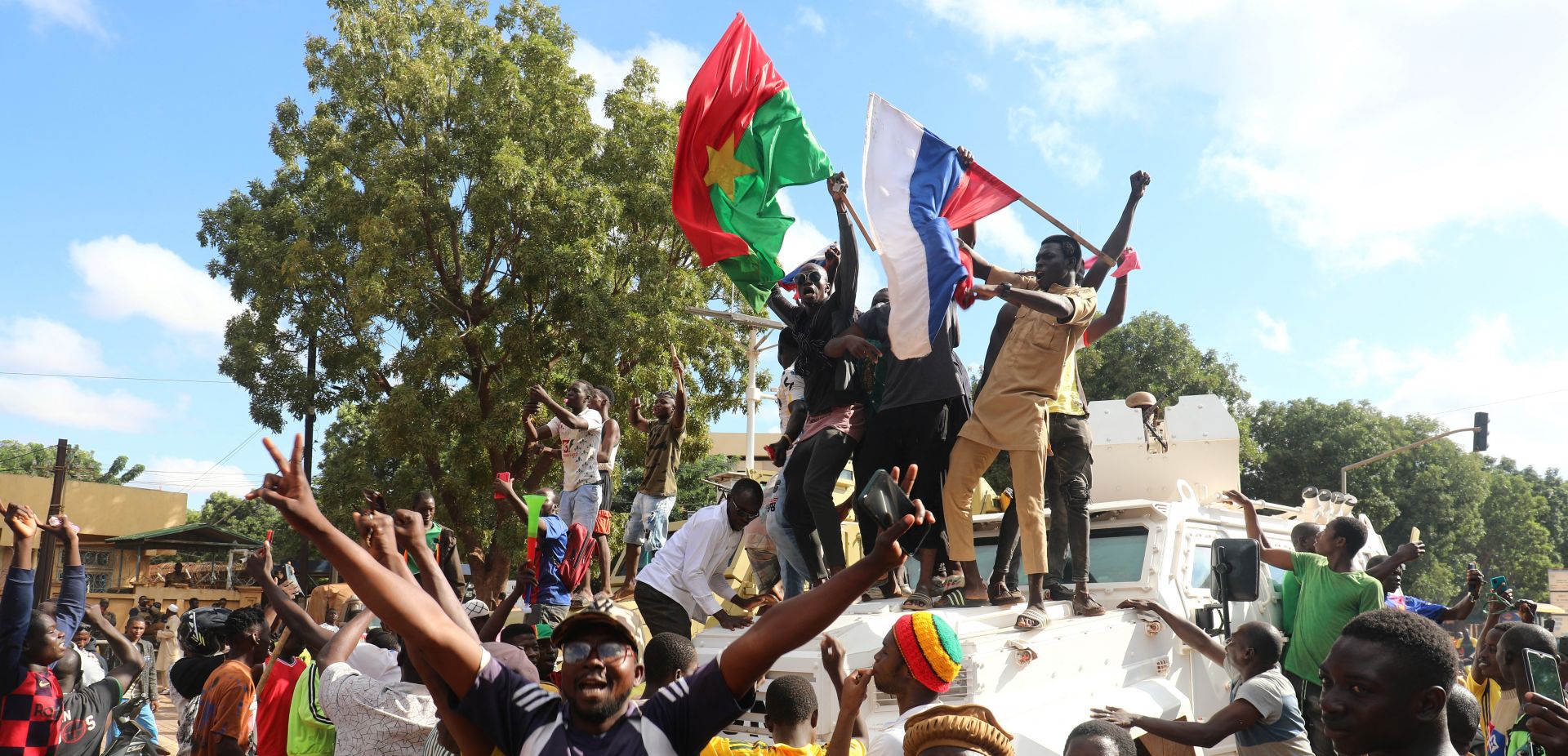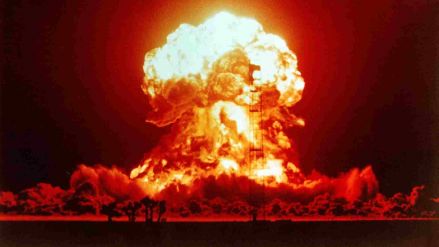This was the sixth military coup in the Sahel in just two years. And the second after just eight months in Burkina Faso. The putsch perpetrated by Captain Ibrahim Traore has much in common with the coups in Mali, Chad and Guinea. It weakens the traditional influence of Paris, strengthens the jihadists, and opens the way for Russia to take the place abandoned by France.
It has been 62 years since the independence of Upper Volta, and in that time the country has already had 10 presidents (two out of three in uniform), none of whom have failed to fulfil two conditions at once: gaining power through democratic elections and leaving peacefully at the end of their term. And not even changing the country's name to Burkina Faso, meaning 'country of the righteous people' in the language of the dominant peoples there (1984), has changed this. More recently, it can even be said to be more of a 'country of military coups'.
Junta devours its own children
Friday evening, 30 September. Ouagadougou, capital of Burkina Faso. A group of officers enter the television headquarters. In keeping with the tradition of military coups in the Black Continent, they stand in front of the cameras and read out a statement: the captain of Burkina Faso's army, Ibrahim Traore, has ousted the country's previous leader, Lieutenant Colonel Paul-Henri Damiba, because he "could not cope with the deteriorating situation in the country caused by the increasing activity of extreme Islamist groups". Traore declares himself the new leader of Burkina Faso. He dissolves the government, suspends the constitution, closes the borders and bans all political parties and social organisations.
After two days of clashes between Traore's forces and soldiers loyal to Damiba, the hitherto military dictator steps down, but on seven conditions. Including a guarantee of security for himself, security for the soldiers who supported him, honouring promises made to the West African bloc of states (ECOWAS) to return to constitutional rule by July 2024 at the latest. Lieutenant Colonel Damiba then goes into exile to Togo. He did not enjoy for long the power he had gained only eight months earlier.
The rebel army announced on 24 January that it had removed President Roch Kabore from office, suspended the constitution, dissolved the government and parliament and closed the borders. In a statement signed by Colonel Paul-Henri Sandaogo Damiba and read out on state television, it said that the seizure of power was non-violent and that detainees were in a safe place.
The previously unknown and most likely ad hoc contrived Patriotic Movement for Protection and Reconstruction (MPSR), "which includes all sections of the army, decided today to terminate President Kabore's tenure," Damiba said.
Kabore lost power primarily because he was not doing well in the war against the jihadists. They were murdering civilians and soldiers with increasing frequency and scale. The former French colony has been struggling for years with attacks by groups linked to al-Qaeda (JNIM) and the so-called Islamic State (ISGS), which infiltrate the country from other countries in the sub-Saharan region. In 2021 alone, at least 2,000 people were killed in attacks conducted by jihadists.
 SIGN UP TO OUR PAGE
SIGN UP TO OUR PAGE

Alongside the civilian authorities, the other target of the Burkinabe's ire has become France, which they believe is insufficiently helping to fight the Islamists, despite having deployed several thousand troops in the Sahel region. Does this remind you of anything? Yes, the situation in neighbouring Mali.
More than a thousand Russian mercenaries from the Wagner Group are now operating in Mali, and the junta has expelled French troops from the country. In January 2022, the Wagnerists were given a military base in Timbuktu, abandoned by the French, by the authorities. There is no shortage of supporters of the 'France out, Russia in' strategy in Burkina Faso. Besides, Moscow itself, through the French-language versions of RT and Sputnik, Prigozhin's internet trolls, and finally the intelligence services, stimulated anti-French and at the same time pro-Russian sentiment in the streets during both Burkina Faso coups. Civilians, but also soldiers themselves, were often seen climbing on armoured vehicles with Russian flags in hand, surrounded by a crowd chanting "Russia! Russia!".

 SIGN UP TO OUR PAGE
SIGN UP TO OUR PAGE
 Alongside the civilian authorities, the other target of the Burkinabe's ire has become France, which they believe is insufficiently helping to fight the Islamists, despite having deployed several thousand troops in the Sahel region. Does this remind you of anything? Yes, the situation in neighbouring Mali.
Alongside the civilian authorities, the other target of the Burkinabe's ire has become France, which they believe is insufficiently helping to fight the Islamists, despite having deployed several thousand troops in the Sahel region. Does this remind you of anything? Yes, the situation in neighbouring Mali.




